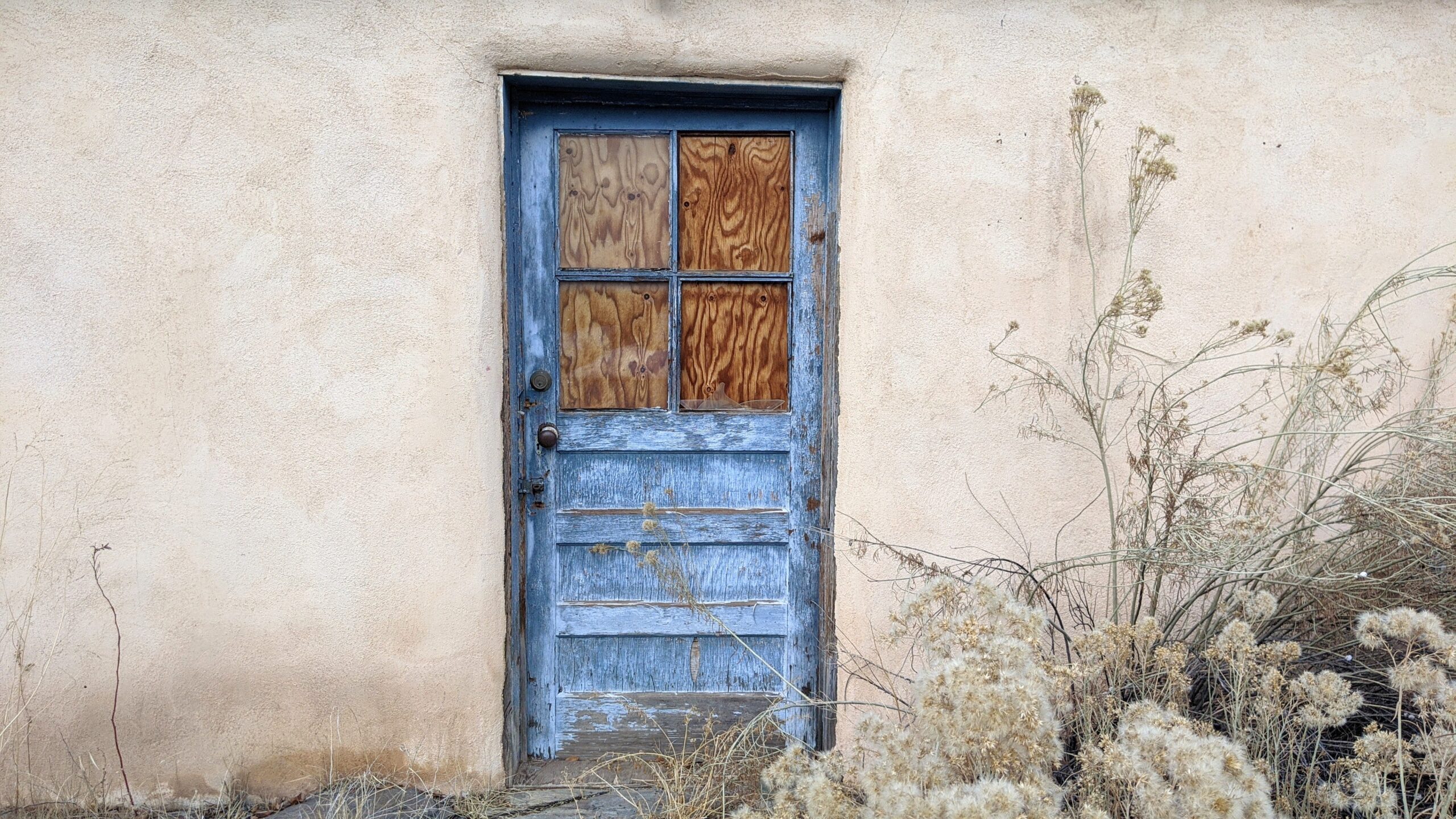Recently, I was introduced to someone who—upon learning that I work as a Housing Advocate—responded with a question I hadn’t expected. Do I receive enough support?
It turned out this person worked as an IT Support Specialist, so perhaps it was just their nature to ask this question, but after an immediate “hell no,” I was stuck with how to politely respond to their next question: What kind of support do I feel that I need?
I stumbled. Who am I to know where to begin in unraveling the growing crisis of homelessness in the United States? It’s beyond explanation, unfathomable in its ridiculousness—like a B-rated, apocalyptic sci-fi flick, except interspersed every five minutes with hand-held phone videos of someone’s Bureaucracy 101 classes. On any given morning, I can scan the news and find not one word about it.
Yet, as winter slowly but surely approaches once again, all across the country people in small towns and big cities continue to be displaced by rising rental prices and lack of affordable options. Nationwide, the median rent for a studio apartment (for those who can find one) has risen by nearly thirty percent since 2019. Nearly three years into the pandemic, multitudes continue to find themselves stuck in a circle of poverty as they’re forced to give up all of their belongings, pets, and maybe even, temporarily, their kids and move into hotel rooms, shelters, family basements, or their parked cars in university garages.
Yet, we often don’t notice these new, pandemic homeless—even when they exist in our innermost circles—because our culture of shame has kept them suffering in silence as they slide into houselessness not because of a lack work or income but because of imbalance and greed, while so many others have taken advantage of the pandemic to hoard and store away: money, land, houses, garden space, natural resources, the view itself.
Some arrived at this point due to medical bills, or the fact that they live on fixed incomes that remain fixed despite inflation. Others couldn’t work due to being immunocompromised or taking care of a loved one who was, and were evicted when the rental moratoriums ended; with evictions on their records, no one will rent to them no matter how much they earn. Others are living in their cars while waiting tables for the visiting work-from-homers, second-homers and vacation-homers because there’s nothing left to rent for miles in any direction in the same regions they were born and raised.
A shocking number of them are over the age of 55. This is particularly sobering given a recent study by The National Institute on Aging of those who first became homeless after age 50—a quarter of the participants had died within a few years of enrolling in the study.
But the question I was asked was not what solutions do I have for this growing crisis. The question I was asked was, what support do I need in addressing it.
I need higher pay. For all my associates. Let’s face it. Money may not always be the solution but it’s usually a good start. I need us to value our social-service workers, teachers, community advocates and mental health professionals and understand that they are the net holding up a broken system—and we are losing so much as a society every single day that one burns out, or moves on to another career in order to not end up homeless themself. (It’s also worth noting that people with lived experience with poverty and homelessness often end up working in the social services themselves, choosing to remain in financial poverty in order to help others escape its trauma. Take a moment to really think about that. Then ask yourself, why do we refer to this work as ‘idealistic’ when it’s being done by those who have survived obstacles we can’t even imagine? Why do we accept that such work is underpaid and undervalued?)
I need people to advocate for rent control even if they don’t need it themselves. I need people with space in their homes to offer up that space for free (yes, I actually wrote that) or for reasonable, local prices. To overcome the temptation of renting short-term for higher prices to tourists while locals are living in their cars in the places they grew up in with no ability to move away even if they wanted to.
I need people to stop investing in “investment homes” that drive up prices and displace entire neighborhoods of multi-generational families and start really investing in their new communities instead, to stop thinking they can earn their income at the expense of one community while living in another, cheaper community without having to balance that out somehow.
I need people to donate to domestic violence shelters and youth programs and libraries and food pantries like they were the IRS and it wasn’t a choice. I promise you, unlike the IRS, those agencies will pick up the phone when you call and your money will actually change lives. Taking a vacation somewhere? Consider it a Visitor’s Tax. Your donations might even go further in those communities—or at least warm a heart with the knowledge that an outsider thought of the inhabitants of the lands they came to see.
I need people to be fully human by caring for each other. After all, is that not what we first think of when we refer to one’s “humanity?” The very essence of what we believe ourselves to be? I need people to be kind to my clients, to show patience when they’re frustrated with their lives, to compliment them when they look run down, to smile at their kids when they’re all crying at once in the grocery store where they’ve gone to cool off from the heat of another night in the car with the windows cracked just enough to let in the air, but not someone’s wandering hands.
I need people to not try to add silver linings to other people’s struggles, or change the subject anytime something uncomfortable about money or privilege comes up. I need us to start talking about money, period—to stop this ridiculous belief that money, or lack thereof, illustrates a person’s moral nature or work ethic. We’re just coming out of a global pandemic into a recession for f*ck’s sake. I need us to stop acting as if capitalism is ‘fair,’ or like we wouldn’t possibly behave the same way as those we judge if we too had less (or more) money.
I need people to recycle and make do, to stop flipping houses after ‘gutting’ them—an appropriate word for the act of buying a hundred-year-old home built of ancient trees only to rip it apart and redo it all in order to sell for more money two years later when the work contract ends. I need us to stop destroying more forests and displacing more indigenous, islander and rural communities when there is already enough scrap in our landfills to last a millennia.
I need developers to stop assuming poor people belong in cubicles. I need them to build affordable housing that they themselves would actually want to live in, and to stop thinking that the right to a view of sky or access to open space is a privilege, that soil is a luxury for hobby-gardeners. I need us, all of us, to build communities, not McVillages.
I need us to take pies to our new neighbors like we used to. I need us to ask how they’re doing or to watch the kids for a minute instead of automatically calling the cops. I need us to notice the children living amongst us—and to remember that they’re children. I need us to care who they become. For all our sakes.
I need us to face our fear again and accept the facts—we may have a vaccine, but the pandemic is far from over. The aftershocks have only just begun. I need us to remember those first weeks of the lockdowns when fear was a nightmare from which we could not escape or deny—those weeks in which we responded to that anguish by dropping food baskets and flowers at the doors of loved ones and strangers alike, by sewing masks into the wee hours of the night, by donating stimulus money to those who never saw a penny because they didn’t exist on paper, and by gathering on rooftops to sing in unison across the planet, like wolves howling our shared existence into the night.
I need us to remember what we’re capable of. That, more than anything, is what I need. And I know it’s possible because when a client calls to report that the car that she’s been living in with her kids was just repossessed while they were taking showers at the Y, she doesn’t have the luxury of forgetting what a person is capable of. She’s too busy brainstorming ways to maintain her humanity and stay alive.
I know it’s possible because I’ve seen what humans are capable of when allowed to rest, just for a moment, in the sanctuary of a place called home.

Jess Lee
JESS LEEis an environmental & community advocate drawn to borders, ecotones, and the shadows between the lines. She was raised in the forests of Appalachia and lived for many years in Mexico, Hawaii and the Pacific Northwest. Her short stories and essays have been published in Cutthroat, Burnt Pine, The Humanist and Z Magazine.

